Understanding Emotional Reactivity and Its Impact on Addiction Recovery
Emotional reactivity—the tendency to experience frequent and intense emotional responses—plays a crucial role in the landscape of addiction and mental health disorders. Particularly in substance dependence, heightened emotional responses can act as triggers for relapse, undermining recovery efforts. This article explores the neurobiological and psychological mechanisms underlying emotional reactivity, its influence on relapse risk, and the therapeutic strategies aimed at enhancing emotional regulation to prevent relapse.
Defining Emotional Reactivity and Its Origins
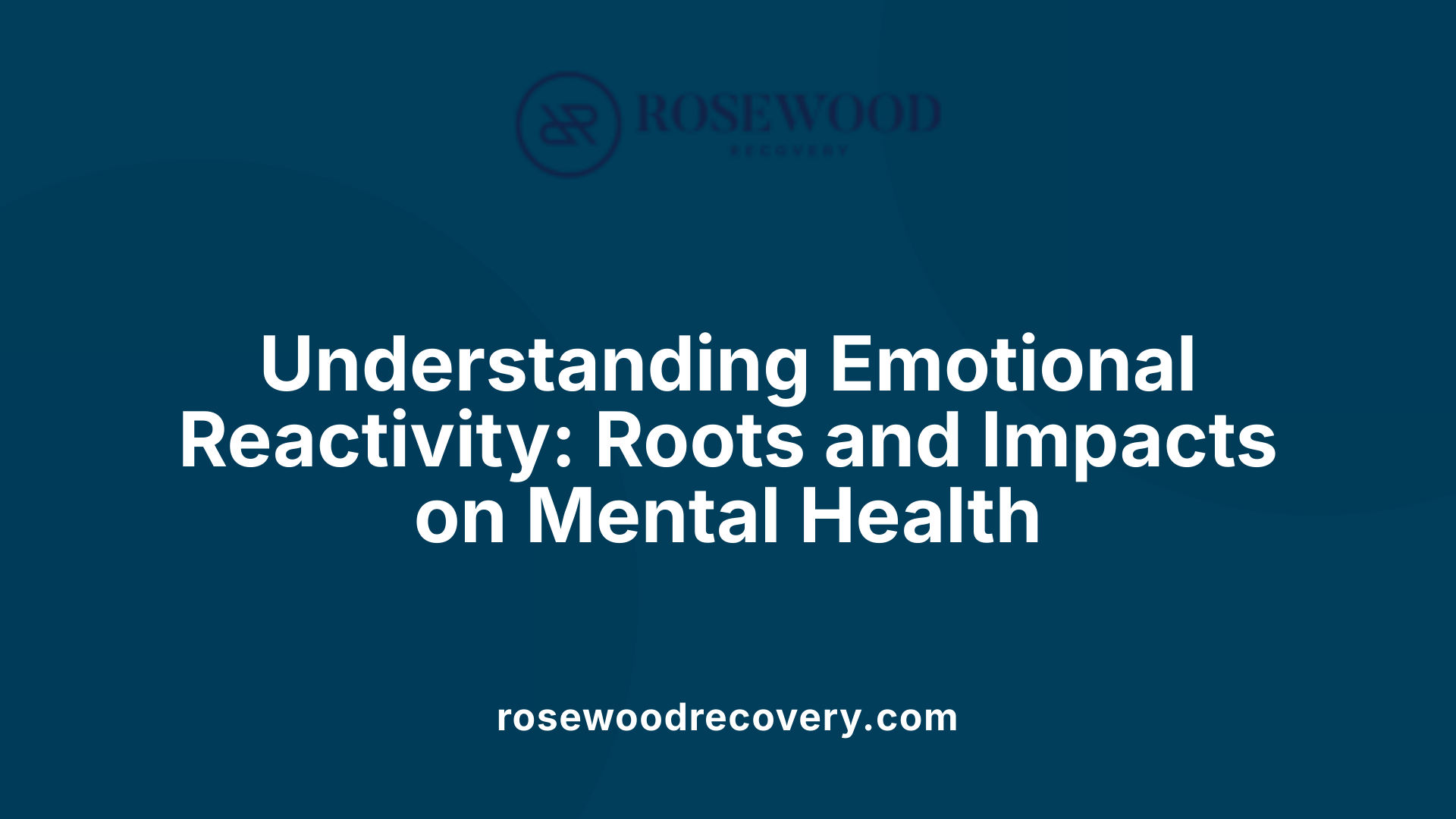
What is the concept of emotional reactivity?
Emotional reactivity is the tendency to experience frequent and intense emotional responses to various stimuli or situations. Individuals with high emotional reactivity often display lower thresholds for emotional arousal, meaning they can become upset, anxious, or overwhelmed more easily than others. The intensity of these emotional experiences can significantly impact behavior, decision-making, and overall mental health.
This heightened responsiveness can lead to difficulties in managing emotions, especially during stressful or challenging circumstances. As a result, emotional reactivity plays a crucial role in mental health conditions, including substance use disorders, where intense emotional states can trigger relapse or substance-seeking behaviors.
What is the primary cause of emotional reactivity?
The roots of emotional reactivity are complex and multifaceted. It is primarily driven by triggers such as stress, interpersonal conflicts, emotional depletion, or underlying emotional disorders. When confronted with these triggers, individuals tend to react impulsively, often entering a 'fight-or-flight' state that clouds judgment and exacerbates emotional responses.
These reactions are frequently automatic, stemming from ingrained habits of responding to emotional triggers without mindfulness or awareness. This automaticity makes it challenging to regulate emotions effectively.
Underlying primary emotions—such as fear, shame, or sadness—often serve as the initial drivers, subsequently provoking secondary emotions like anger or frustration. This emotional cascade can intensify reactive behaviors, especially in individuals with poor emotion regulation skills.
Addressing emotional reactivity involves developing mindfulness, emotional awareness, and communication skills. Feeling emotions fully, creating mental space between triggers and responses, and cultivating self-awareness can help manage impulsive reactions and promote healthier emotional processing.
Neural Circuits Underpinning Emotional Dysregulation in Addiction
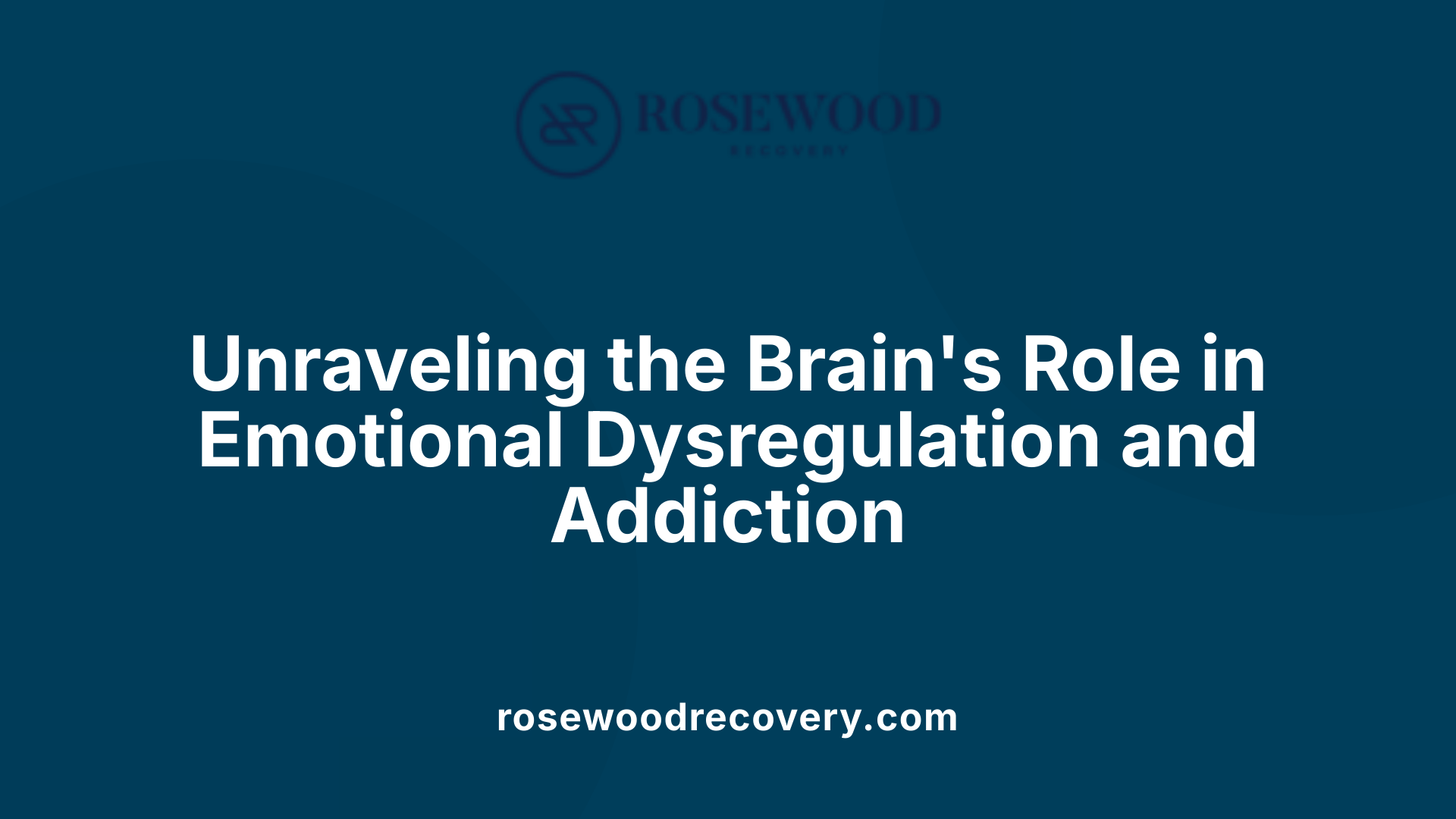
What are the neurobiological mechanisms linking emotional responses to relapse?
The connection between emotional responses and relapse in addiction involves complex neurobiological pathways. Key changes occur in brain circuits responsible for emotion regulation, stress response, and reward processing. During addiction, neuroadaptations take place across three stages—binge/intoxication, withdrawal/negative affect, and preoccupation/anticipation.
In the withdrawal stage, there is often heightened stress within the extended amygdala, a region crucial for processing negative emotions. Simultaneously, activity decreases in the prefrontal cortex areas responsible for self-control, such as the medial prefrontal cortex (mPFC), impairing judgment and emotional regulation. This imbalance fosters negative emotional states that can trigger relapse.
Neurochemical changes also play a significant role. Increased levels of stress neuropeptides like corticotropin-releasing factor (CRF) and dynorphin contribute to feelings of anxiety and dysphoria, common during withdrawal. Excessive activation of these neuropeptides intensifies negative emotional states, creating strong motivations to seek relief through substance use.
Furthermore, alterations in neurotransmitter systems, particularly a reduction in dopamine D2 receptor availability and neuroinflammation mediated by glial cells, impair decision-making and emotional control.
This neurobiological insight shows how negative emotional states, fueled by dysregulated circuits and neurochemical imbalances, can precipitate relapse, especially when individuals encounter emotional triggers or stressful situations. Targeted treatments that address these pathways—such as medications modulating neuropeptides or therapies strengthening prefrontal control—could improve recovery outcomes.
How do specific substances like alcohol or cocaine differ in their neural impact related to emotional reactivity?
Different substances affect emotional processing circuits in distinct ways. Alcohol dependence is generally linked to a broad reduction, or blunting, of neural responses to negative emotional stimuli. Studies show decreased activity in regions such as the amygdala, insula, anterior cingulate cortex (ACC), and medial prefrontal cortex (mPFC). This dampening may reduce emotional sensitivity initially but can impair emotional regulation over time, increasing vulnerability to negative mood states during withdrawal.
Cocaine dependence presents a more variable neural pattern. Some studies reveal heightened activation of prefrontal regions and increased emotional reactivity during specific tasks, while others indicate diminished responses, depending on the context and abstinence length. Altered connectivity between prefrontal regions and limbic areas impacts how emotional stimuli are processed, potentially leading to impulsivity and difficulty regulating emotions.
Opioid dependence primarily involves dysregulation of the amygdala, with increased activity correlating with heightened anxiety and stress responses. These heightened responses can exacerbate negative emotional states, which may subside with effective opioid treatment.
Cannabis dependence involves disrupted functioning in the insula, ACC, and mPFC. Although fewer studies are available, evidence suggests that cannabis use leads to dysregulation in these emotion-related regions, similar to alcohol, potentially influencing emotional reactivity and relapse risk.
Understanding these substance-specific effects helps tailor treatment strategies that address the unique neurobiological alterations associated with each drug, ultimately supporting better management of emotional triggers and reducing relapse likelihood.
The Role of Emotional Dysregulation in Relapse Risk
How does emotional regulation contribute to preventing relapse?
Emotional regulation is crucial in the context of addiction because it helps individuals manage the intense emotions and triggers that often lead to drug use relapse. When people with substance use disorders develop strong skills in regulating their emotions, they are better equipped to handle negative feelings such as stress, anxiety, and depression, which are common relapse triggers.
Evidence-based therapies like Dialectical Behavior Therapy (DBT) and Cognitive Behavioral Therapy (CBT) focus extensively on teaching effective emotion regulation techniques. These strategies include mindfulness, distress tolerance, and cognitive restructuring, which enable individuals to respond constructively instead of impulsively turning to substances.
Research shows that those with improved emotion regulation exhibit lower levels of impulsivity and cravings. By reducing negative emotional states, individuals can maintain psychological stability and resilience during challenging situations, ultimately supporting sustained recovery. Strengthening emotional regulation enhances their capacity to resist high-risk triggers and maintain abstinence.
Emotion Regulation Strategies in Addiction Treatment
How does emotional regulation contribute to preventing relapse?
Emotion regulation is crucial in addiction recovery because it helps individuals manage the intense emotions and triggers that often lead to drug use. When someone can effectively recognize and control feelings like stress, anxiety, or depression, they are less likely to turn to substances for relief.
Therapies such as Dialectical Behavior Therapy (DBT) and Cognitive Behavioral Therapy (CBT) are commonly used to teach these vital skills. In DBT, clients learn mindfulness, distress tolerance, emotional regulation, and radical acceptance. These tools enable them to stay present, endure difficult emotions, and accept their experience without impulsive reactions.
Similarly, CBT focuses on identifying and reframing negative thought patterns. By changing how one perceives emotional triggers, individuals can respond with healthier behaviors instead of substance use.
Research shows that people with addiction often struggle with emotional regulation, which increases impulsivity and cravings. Building their skills in managing emotions reduces these urges and helps prevent relapse.
In practice, effective emotion regulation fosters resilience, allowing individuals to handle high-stress situations without reverting to drugs. This not only stabilizes mental health but also supports a sustained recovery journey.
Overall, developing emotional regulation skills is a powerful strategy for reducing relapse risk, empowering individuals to better cope with life's emotional challenges and maintain long-term sobriety.
Sleep, Emotional Reactivity, and Relapse — An Emerging Connection
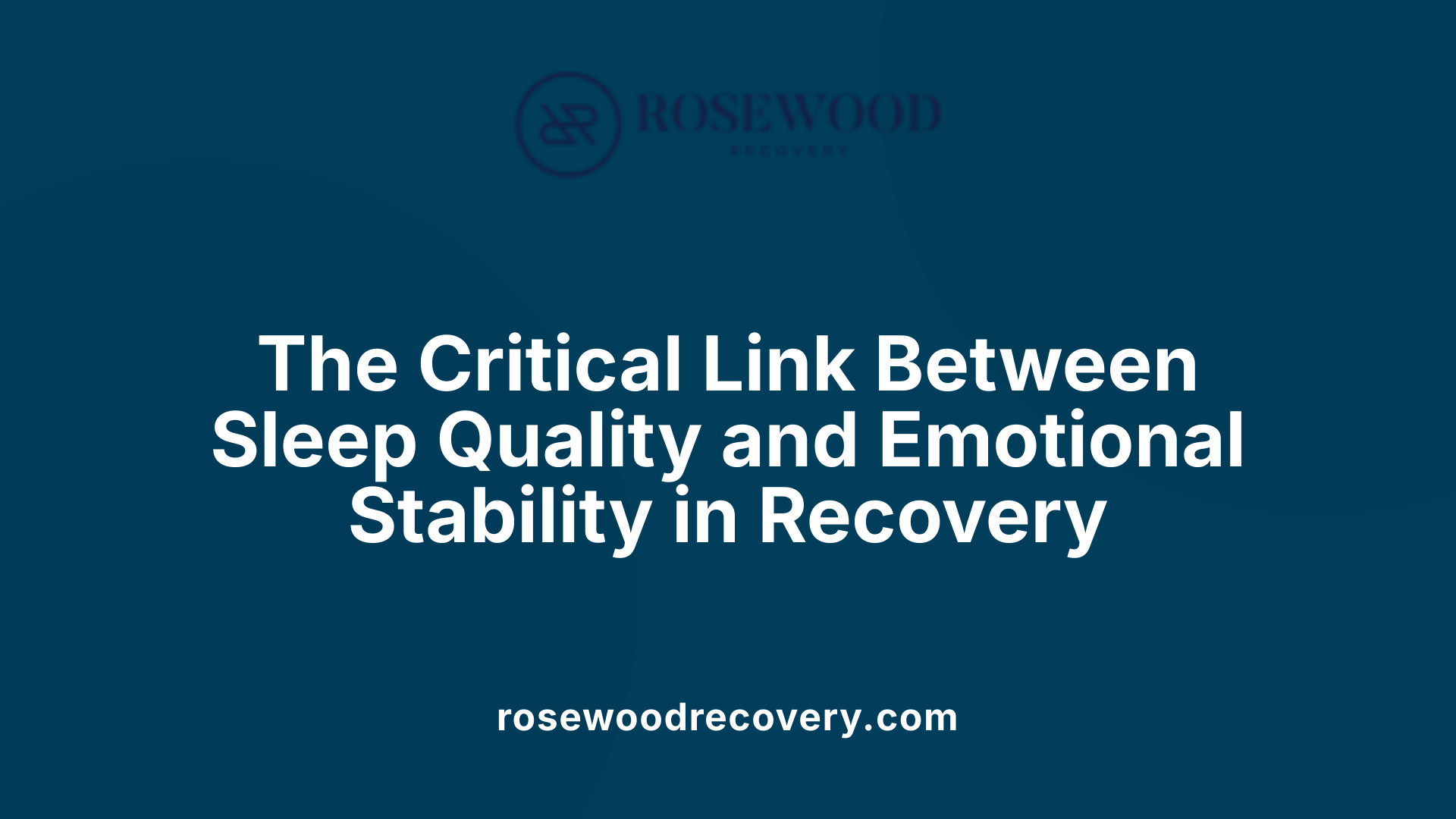
What is the connection between sleep, particularly REM sleep, and emotional reactivity in individuals with alcohol use disorder?
Research is increasingly exploring how sleep impacts emotional processing in addiction. In particular, REM sleep appears to play a crucial role in regulating emotional responses. A recent study focuses on individuals with alcohol use disorder (AUD) to understand this relationship.
The investigation hypothesizes that maladaptive REM sleep—characterized by disruptions or abnormalities—may negatively impact neural pathways involved in processing emotions. This disruption could heighten emotional reactivity, making individuals more sensitive to negative stimuli such as stress or emotional distress.
To explore this, researchers employ a within-subject design, meaning the same participants experience different sleep conditions. These conditions include normal, uninterrupted sleep and sleep with selective REM sleep reduction. Using functional magnetic resonance imaging (fMRI), the scientists measure brain activation and functional connectivity in regions associated with emotional regulation.
The goal is to observe how changes in REM sleep influence neural responses to emotional stimuli the next day. Increased emotional reactivity may lead to heightened craving and a greater likelihood of relapse in AUD patients. The findings aim to underscore sleep’s vital role in emotional health and its potential as a therapeutic target to prevent relapse.
How does REM sleep reduction influence neural emotional reactivity in AUD?
The current study suggests that restricting REM sleep—considered a form of maladaptive sleep—can impair the brain’s ability to manage emotions effectively. In individuals with AUD, diminished REM sleep might cause hyperactivity in neural circuits that process negative emotions.
Since REM sleep is integral to emotional regulation, its disturbance can lead to increased sensitivity to emotional triggers. Consequently, this can escalate craving levels and make relapse more likely.
By using neuroimaging techniques like fMRI, scientists are able to identify specific changes in brain activity and connectivity after REM sleep reduction. These insights can provide a clearer understanding of how sleep quality directly influences emotional vulnerability in addiction.
Understanding this link emphasizes the importance of healthy sleep patterns in addiction recovery. Targeting sleep disturbances—especially REM sleep abnormalities—could be a promising strategy to bolster emotional regulation and support sustained abstinence.
Psychological and Neurobiological Interventions for Emotional Regulation
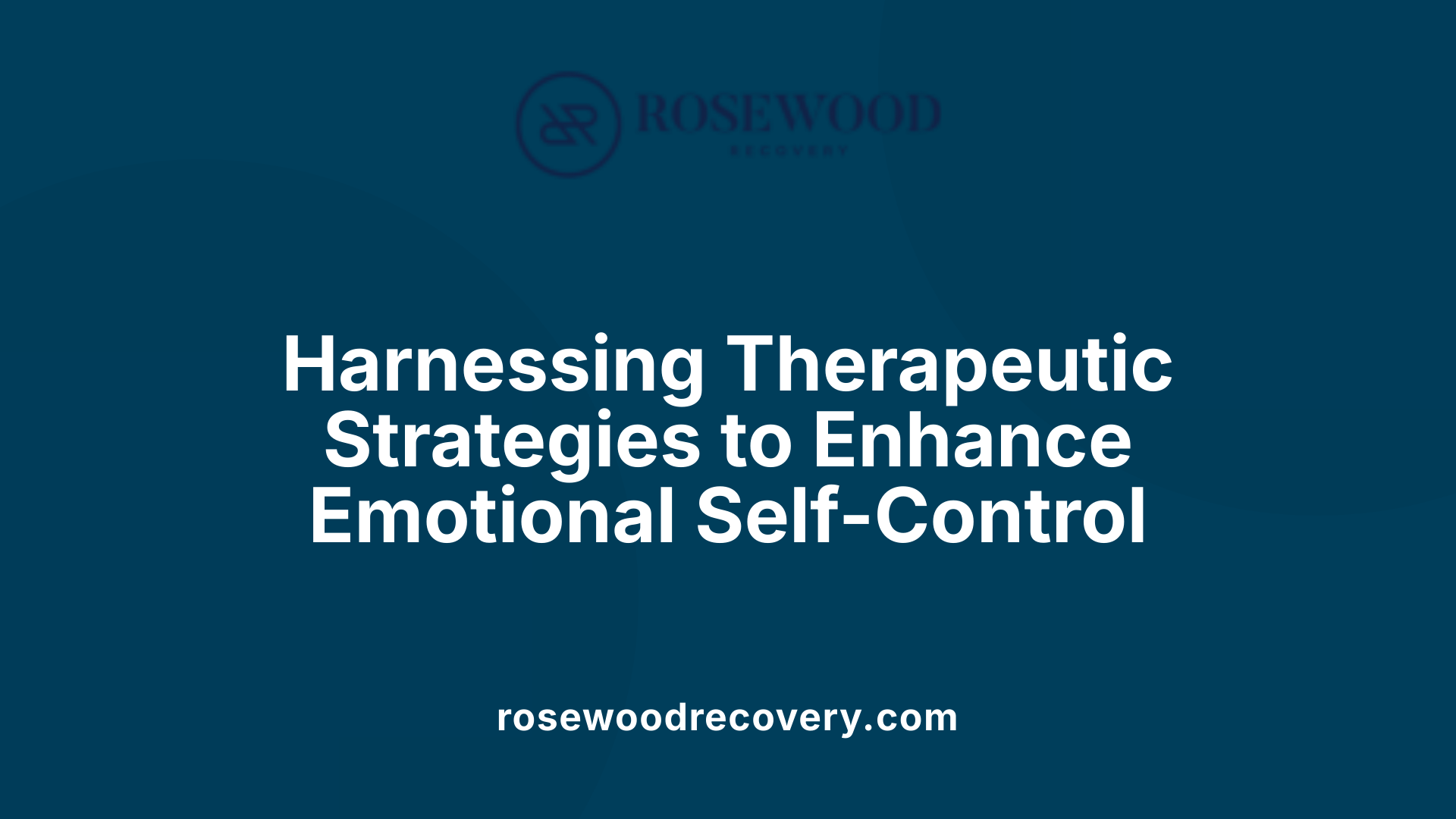
How does emotional regulation contribute to preventing relapse?
Emotional regulation is a crucial component in reducing the risk of relapse among individuals recovering from substance dependence. It involves the ability to recognize, understand, and manage emotional responses effectively, particularly in high-stress or triggering situations.
Research shows that many with substance use disorders experience impaired emotional regulation, characterized by heightened emotional reactivity and difficulty controlling negative feelings such as anxiety, stress, and depression. When these emotions are poorly managed, they can lead to cravings and impulsive drug use as an attempt to alleviate discomfort.
Therapies like Dialectical Behavior Therapy (DBT) and Cognitive Behavioral Therapy (CBT) are designed to enhance emotional regulation skills. DBT trains individuals in mindfulness, distress tolerance, and radical acceptance, helping them stay present and tolerate emotional distress without resorting to substance use. CBT focuses on identifying and restructuring negative thought patterns that contribute to emotional dysregulation.
Improving emotional regulation reduces impulsivity and cravings, enabling individuals to respond to emotional triggers with healthier coping strategies. This resilience protects against relapse by maintaining psychological stability and decreasing the likelihood of turning to drugs during stressful episodes.
In essence, strengthening emotional regulation empowers individuals to better manage their emotions, thereby supporting long-term recovery and decreasing relapse rates. Evidence suggests that programs incorporating these strategies lead to better treatment outcomes, including reduced substance use and improved mental health.
Skills and approaches used in therapy
Therapeutic approaches for emotional regulation encompass various skills that promote resilience and self-control. Key techniques include mindfulness training, emotion identification exercises, distress tolerance practices, and cognitive restructuring.
Interventions such as MBSR (Mindfulness-Based Stress Reduction) incorporate mindfulness meditation to enhance awareness of emotional states and bodily sensations, aiding emotional clarity and regulation. Exercise, including physical activity and relaxation techniques, also plays a role in reducing stress and improving mood.
Implementing these practices within treatment settings helps individuals develop a toolbox of coping skills. Such skills enable them to navigate emotional challenges without resorting to substance use, thereby reducing the likelihood of relapse.
Overall, integrating evidence-based strategies that focus on emotion regulation offers a promising route to improving long-term outcomes in substance use disorder recovery.
Summary and Final Insights
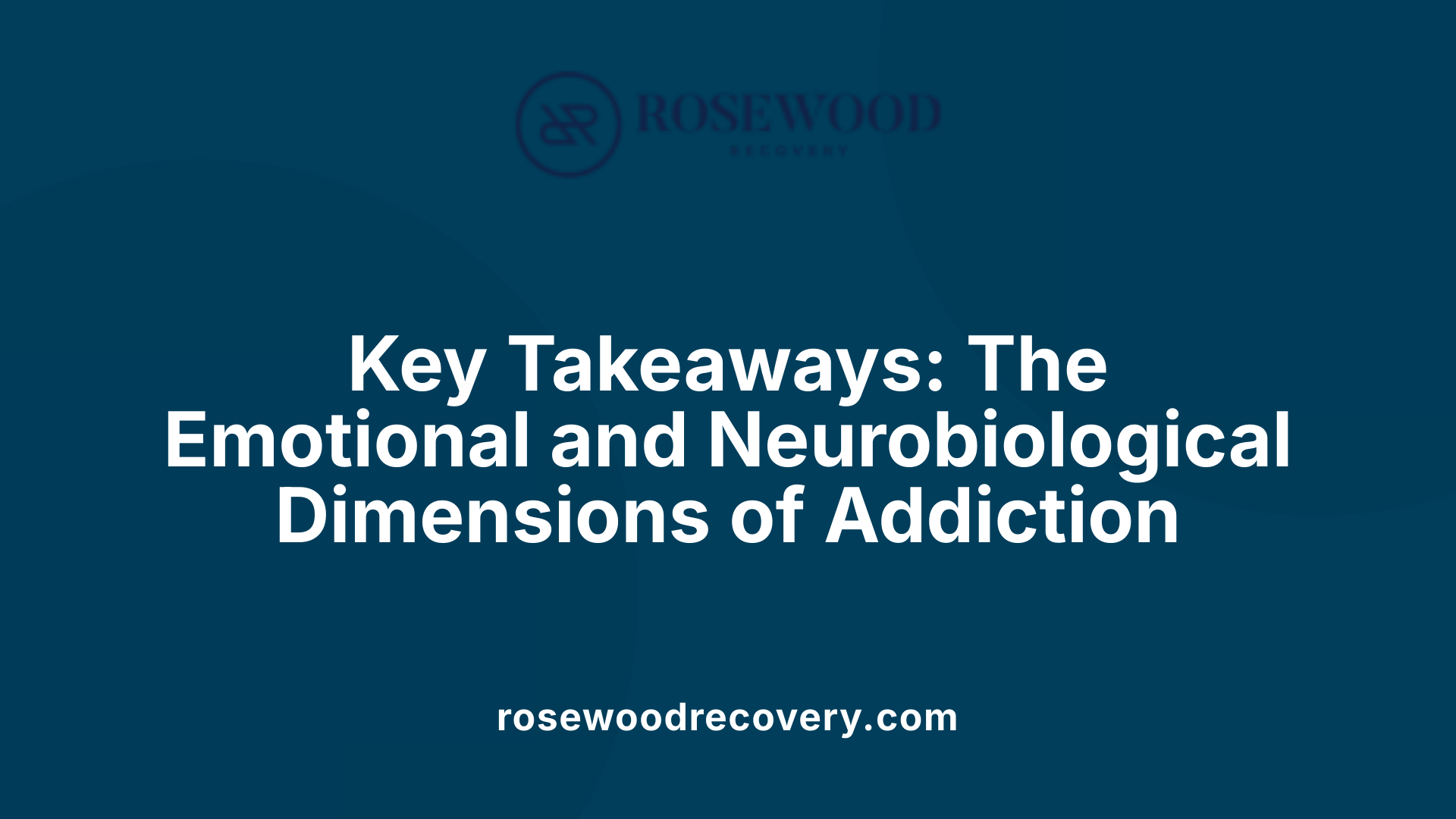 Understanding the emotional aspects of addiction highlights how brain regions such as the amygdala, insula, anterior cingulate cortex, and medial prefrontal cortex are affected differently across substances like alcohol, cocaine, opioids, and cannabis. For instance, alcohol dependence is associated with blunted neural responses to negative stimuli, while cocaine dependence shows heightened reactivity, and opioids involve consistent amygdala dysregulation.
Understanding the emotional aspects of addiction highlights how brain regions such as the amygdala, insula, anterior cingulate cortex, and medial prefrontal cortex are affected differently across substances like alcohol, cocaine, opioids, and cannabis. For instance, alcohol dependence is associated with blunted neural responses to negative stimuli, while cocaine dependence shows heightened reactivity, and opioids involve consistent amygdala dysregulation.
Emotional dysregulation and poor emotional regulation skills significantly contribute to relapse risk. Therapies like Dialectical Behavior Therapy (DBT) and Cognitive Behavioral Therapy (CBT) focusing on emotion regulation skills prove effective in improving treatment outcomes.
Moreover, stress and emotional reactivity are closely linked to craving and relapse. Disruptions in the stress response systems, whether neurobiological, emotional, or behavioral, increase vulnerability to drug seeking behaviors. Interventions aimed at normalizing stress responses and enhancing emotional regulation hold promise for reducing relapse risk.
Practically, integrating emotion regulation training into addiction treatments and addressing emotional reactivity early can strengthen individuals’ resilience against relapse. Future research should explore how sleep patterns, particularly REM sleep, influence emotional reactivity and relapse, offering additional avenues for intervention. Overall, recognizing the emotional dimensions of addiction underscores the importance of comprehensive treatment strategies that target both neurobiological and psychological factors to promote sustained recovery.
Harnessing Emotional Regulation to Prevent Relapse
Understanding the intricate connection between emotional reactivity and relapse underscores the importance of integrating emotion regulation strategies into addiction treatment. Neurobiological insights reveal that changes in brain regions such as the amygdala, insula, and prefrontal cortex underpin emotional dysregulation, which can precipitate relapse. By employing evidence-based therapies like DBT, CBT, and mindfulness, individuals can develop skills to better manage their emotions, reduce impulsivity, and cope with stress and cravings. The emerging research on sleep’s role, particularly REM sleep, further highlights opportunities for novel interventions to support emotional stability. Ultimately, promoting emotional regulation not only enhances treatment outcomes but also fosters resilience, empowering individuals to sustain long-term recovery despite emotional challenges.
References
- emotional dysregulation is a critical driver of relapse to drug use
- Re-evaluating our focus in addiction: emotional dysregulation is a ...
- Emotions and relapse in substance use: Evidence for a complex ...
- Effectiveness of Emotion Regulation Training on the Reduction of ...
- The Neuroscience of Emotional Regulation in Addiction Treatment
- Study Details | Sleep and Emotional Reactivity in Alcohol Use Disorder
- Emotional Reactivity - WholesomePathway.com
- Emotion dysregulation across levels of substance use - ScienceDirect
- Associations between emotional reactivity to stress and adolescent ...




